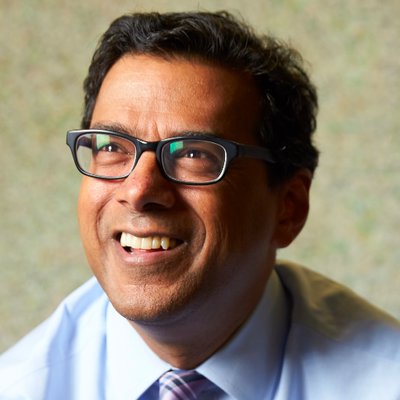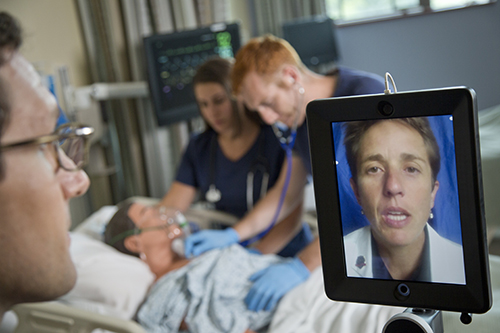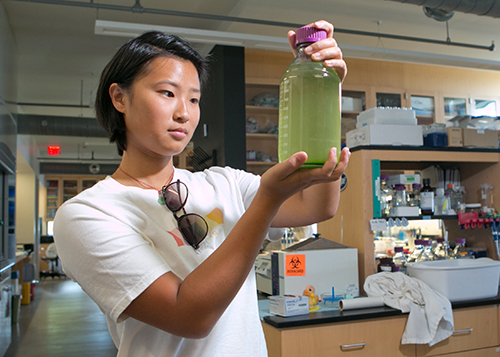I recently spoke to the Academic Council about my new role overseeing Duke’s entire research enterprise – medical and campus – and I reiterated for them the messages in my first blog post: that all of us should take part in the quality and rigor of Duke’s research efforts and that everyone should participate in activities like Responsible Conduct of Research (RCR) training and other activities that will help us to improve.
Not all the faculty are persuaded, I soon learned.
“I read your recent blog post about quality. Clearly that was not meant for me,” one senior faculty member said to me. He suggested that my reminding the community of such matters was beneath him, and probably beneath many other faculty. “Of course we treat people with respect! Of course we always do research the right way!”
In response, let me share with you an important lesson from a book I read recently, “The Checklist Manifesto,” by Atul Gawande. He’s a general and endocrine surgeon at Brigham and Women’s Hospital in Boston who advocates the use of checklists for surgeons, just as pilots and space programs have used.

Checklists impose structure, they force us to think more slowly and carefully, and to systematically address specific questions of relevance to the mission, even if it’s a procedure we’ve done countless times before. Pilots and astronauts aren’t insulted by them.
At the end of his book, Gawande writes about his personal use of checklists in his surgical practice and a very important lesson he learned by using them.
When he first started thinking about checklists, Gawande thought it was an interesting subject, and that it was highly relevant to the average surgeon. However, with respect to himself, a top-flight surgeon, a former Rhodes Scholar and a MacArthur Fellow, he felt the exercise was probably redundant.
But since he had written and spoken so much about checklists, Gawande always went through the motions, just to avoid looking like a hypocrite. That is, until a particular surgery humbled and changed his perspective on checklists forever.
Gawande was about to perform a surgery, and the head nurse was going down the list of items needed for this particular procedure. All items checked off as expected until they came to the need for a substantial supply of blood in case of a rare complication that could cause severe bleeding.
This item surely was added after a prior disaster and a root-cause analysis that refined the checklist for this type of surgery. But as they went down the checklist, the extra blood was absent. So the team quickly got the blood, and the surgery commenced.
To Gawande’s horror, this particular surgery triggered that rare complication. But because they had the substantial supply of extra blood on hand, the surgical team was able – with great effort — to save the patient’s life.
Gawande says he was chastened by this experience. Without attention to the checklist, this patient would have died on the table.
But academic research isn’t anything like flying a plane or opening an abdomen, or is it? I think the stakes for university research are very high. Duke just settled a case related to research misconduct that cost the university more than $100 million, and damaged our reputation. It might have been prevented.

We have a responsibility to be good stewards of the more than $1 billion in annual funding that allows us to do this important work. The organizations that entrust us with those resources (often the federal government) are counting on us to use those resources well, and to engage in research of the highest quality. The stakes are high, and so should be our responsibilities.
While they aren’t a perfect analogue to things like RCR training, safety checklists address predictable human fallibility, which is often a result of thinking instinctually rather than carefully. RCR training, conflict of interest forms, institutional review boards and other research controls seek to address issues in the same way, by identifying problems that have come up in the past at Duke or other institutions and trying to prevent these lessons from having to be learned again (analogous to the need for extra blood).
I also think it’s important that another key component of checklists is cultural: Anyone on the surgical team is allowed to question anything before or during the surgery. This means that a junior nurse on the team can challenge the lead surgeon if they see something that is in conflict with best practice or the checklist. If you see something, say something.
Anyone at Duke who sees behavior that challenges the values connected to the principles of our checklists – conflict of interest, institutional review board, responsible conduct of research — has the right, and the responsibility, to say something.
Inviting faculty, trainees and staff to engage with training does not mean we feel our people are unaware of these issues. It does not mean we feel that Duke researchers lack integrity. It is just that we are all very busy and focused on many things, and we are human.
I’m asking all of us to slow down for a moment, and to remind ourselves of our responsibility to ourselves, to the broader Duke community, and to our research sponsors. We want to set a tone and a culture that will help all of us push the Duke research enterprise to even higher levels of excellence.

Post by Larry Carin, Vice President for Research






